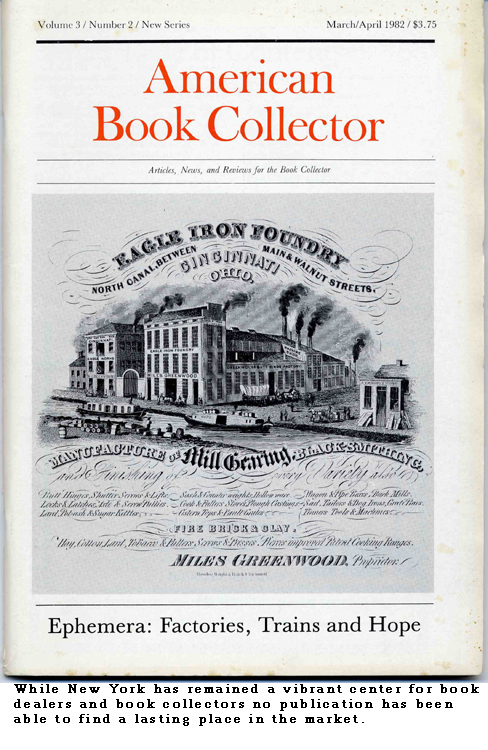Finding Early Works About The Oregon Trail
- by Michael Stillman

MatchMaker finds Matches
Even earlier is John Bradbury’s Travels in the Interior of America…. The first edition is printed in Liverpool in 1817, the second in London in 1819. The second includes a map not included with the first. Bradbury had accompanied Hunt on a journey up the Missouri in 1810. And then there’s H.R. Brackenridge’s Views of Louisiana…, printed in 1814. Unusually, this work was actually printed in America, specifically, the frontier town of Pittsburgh. Brackenridge passed Hunt going up the Missouri, but returned to St. Louis long before reaching Oregon. Next is another French work, Gabriel Franchere’s 1820 Relation d’un Voyage…, printed in Montreal.
Finally, there’s a very interesting item despite its relatively recent date: Robert Stuart’s The Discovery of the Oregon Trail, printed in 1935. Why so late? It’s not a typical reprint. The answer is that it’s the first English edition. It originally was published with a set of other volumes in French in 1821. This book also contains the first English translation of Hunt’s work. Stuart traveled backward, from Oregon to St. Louis, in 1812-13, and is credited with discovering "South Pass" (a key pass on the Oregon Trail) and establishing the Trail itself.
O.K. We’ve developed a nice list of early Oregon Trail-related titles simply by discovering the name of Wilson Hunt. Now let’s try adding some of these other names to Oregon in a search. To save time, we’ll do them all at once. Watch carefully. We’ll put the “or” sign (“/ ”) between each name, and then the “and” sign (“&”) before Oregon. It looks like this in the search box: cox/bradbury/brackenridge/franchere/staurt&oregon. This will find us every record with one of these surnames plus the word “Oregon.”
This brings up several new titles, including Alexander Ross’ The Fur Traders of the Far West. Not surprisingly, we find that most of these early “explorers” were really fur traders, who later recounted what they had discovered in the conduct of their trade. While slightly later in printing date (1855), this work recounts Ross’ adventures between 1813 and 1825. What’s really interesting, however, is an even later title, Reuben Thwaites’ Early Western Travels. This ÆD reference, taken from one of Edward Eberstadt’s catalogs, lists over 30 names of early explorers. Now I can take these names down and do another of those “or” searches combined with “Oregon” to find even more references. Starting from just one name, Wilson Hunt, I’ve discovered a whole list of names to research.
Many new titles emerge as I search these new names. I discover works written by explorers such as James O. Pattie, Peter Skene Ogden, Benjamin Bilson, and Father DeSmet. However, I have a particular interest in two works by Thomas Jefferson Farnham: from 1841 there’s Travels in the Great Western Prairies…, and from 1844, History of the Oregon Territory. My attention is particularly focused on the rare first edition of the earlier title. Those of you following my colleague, Bruce McKinney’s contributions to this collaborative project, may be aware that he is a collector of Hudson Valley imprints. It just so happens that on this title, our interests overlap. Farnham’s first book was first printed in the spelling bee participant’s nightmare city, Poughkeepsie, New York. And as any geographer knows, Poughkeepsie was settled along the banks of the mighty Hudson.
This will not be an inexpensive title to purchase. An inscribed copy from Farnham was sold at the Siebert auction in 1999 for $3,450, more than double the estimate. An unsigned version was sold by Christie’s in 2002 for $1,554. I find only one copy of the Poughkeepsie first available on Abebooks today, a not-perfect copy for $2,250. I’ll need to keep my eyes open for this one. If I find the right copy, I may be able to sell it to Mr. McKinney…after a suitable mark-up, of course.